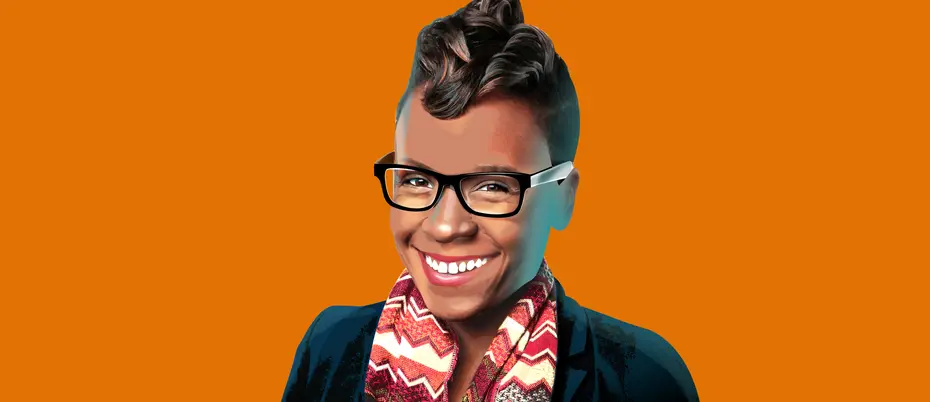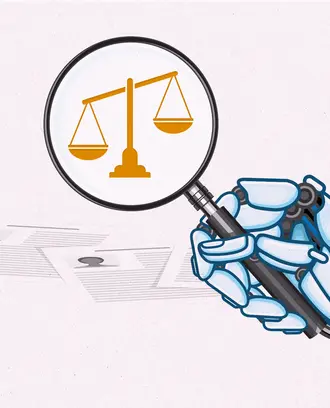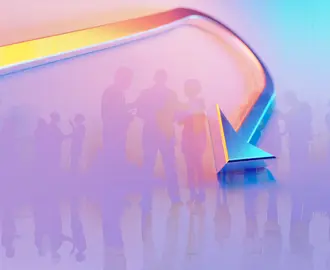Hiring
This CEO wields transparency and openness to crowdsource ideas
Use openness and transparency to your advantage by testing ideas with clients, customers, family, and anyone else you meet.
Stephanie Lampkin started Blendoor in 2015 to match employers with diverse talent through anonymized profiles — no names, photos, or ages driving bias in hiring.
Five years later, the company also offers BlendScore, which rates companies using a variety of diversity metrics.
In the months since the killing of George Floyd while in police custody spurred a global movement for racial justice, employers have made promises about diversity, including hiring. Lampkin said she’s seen a major uptick in attention for Blendoor’s work — a lot of it is focused on understanding where to start.
“We're realizing that a lot of the challenges are rooted in cultural nuances and leadership, [and companies are] not really buying into the business case for diversity,” said Lampkin, MBA '13. “They’re treating it more as an employer-branding, marketing sort of HR-legal problem than they are a strategy and innovation opportunity.”
We asked Lampkin for her thoughts on creating opportunity, and how she works with ideas.
Who inspires you?
People who make something from nothing, meaning they haven't had the privilege of a wealthy background, or the right gender, color, circumstances; they really had to genuinely pull themselves up from their bootstraps.
It's a bit cliché but Oprah Winfrey to me is the epitome of the "something-from-nothing." She had so many factors against her from birth that she transcended to become one of the most powerful human beings on the planet.
Where do you get ideas?
Most of my best ideas come from lived experiences and just identifying areas where I see the largest inefficiencies. I was a management science and engineering major at Stanford, which is all about efficiencies, so I think I see life through a lens of optimization.
How are new ideas discovered and developed in your organization?
I would say that they're crowdsourced in a sense. We work with so many different companies and people — we're in the people space — so I'm often recording things that we're hearing over and over again in an effort to funnel them into tangible ideas that can scale.
How do you keep track of new ideas?
We have a lot of document management tools, project management tools, note-taking tools. I try to record as much as possible. I'm also a pencil and paper person.
Who do you share new ideas with?
My fiancé, who is actually also head of product. It kind of works out really well because I run the ideas by her and she's able to kind of talk some sense into me and tell me what's feasible and what makes sense. This is particularly helpful because I’m really great at coming up with new ideas, but not as good at feasibility and scope analysis. What seems relevant and simple to implement in my head is often very distracting and/or resource-intensive in reality.
How do you test ideas?
Beyond just bouncing ideas off our team, I have a cohort of friendly clients to whom I often will just say "Hey what do you think about this?" Sometimes I’ll host events where we'll offer anonymous feedback on some of the up-and-coming ideas that we have, but I'm really big on being transparent about things that we're working on in order to get as much feedback as possible.
When do you know it is time to abandon an idea?
I had a previous startup, and the point at which I knew it was time to abandon it was when I was spending more effort in trying to explain the benefits and need for that thing than I was getting positive feedback and reception around its value.
What was your worst idea?
I decided to form my own Burning Man camp two months before the start date. Worst idea ever.
What's the biggest idea you are working on right now?
Figuring out the "professional DNA encoding" of women and other underrepresented groups in corporate America. That means identifying what signals of success exist among people who have been left out of power structures, so that we can better predict what potential looks like among [people who are not] white cisgender men.
At MIT Sloan, we talk about ideas made to matter — ideas that are carefully developed and have meaningful impact in the world. In that context — what is your idea made to matter?
My guiding idea is that talent and genius are evenly distributed, opportunity is not. When we come out of the womb, day zero, we are all for the most part capable of changing the world, there's just a series of circumstances that limit those possibilities. And the closer that we get to eliminating those barriers to people reaching their full potential, the better we are as a human society.




